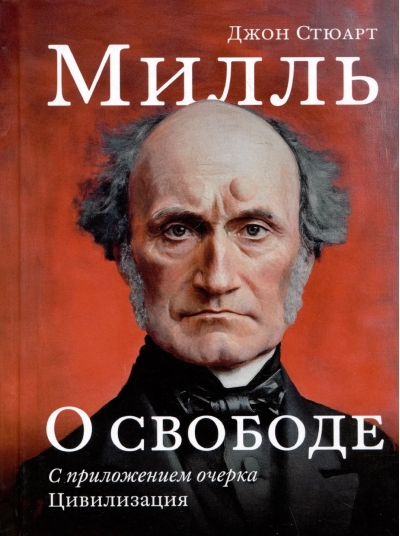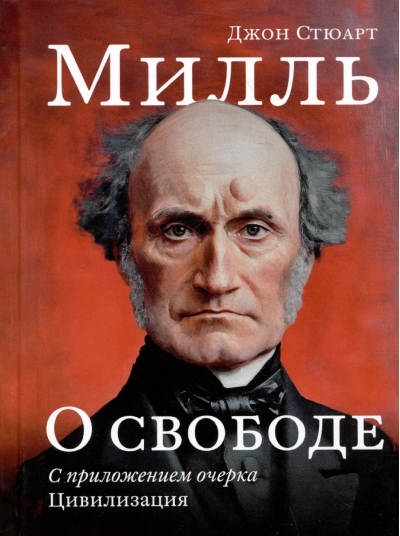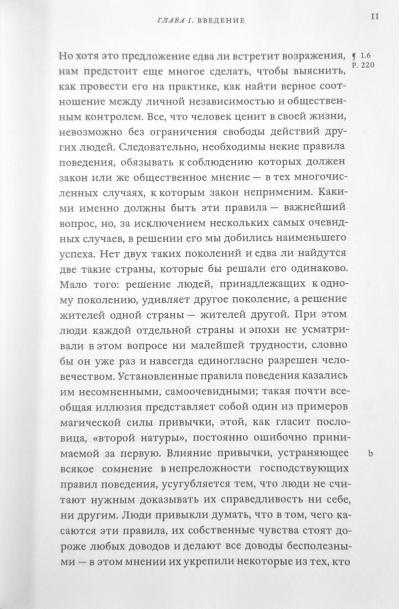On Freedom. With the Essay "Civilization"
14.99 €
The only thing available 2
The reader is offered a new translation (the first since 1901) of John Stuart Mill's famous essay "On Liberty", published in 1859 and continuously discussed by political philosophers since then.
In it, Mill first raises the question of the individual's relationship not only to church and state, but also to society, trying to determine the limit beyond which public opinion cannot legitimately interfere with personal independence. The doctrine of the relationship of the individual to society formulated here consists of three main personal liberties (I. 12), two maxims on the individual's responsibility to society (V. II, I. 9-10, IV. 4-7) and three objections to government intervention (V. 18-20).
Mill argues that people should be free to do as they please, as long as their actions do not harm others. He emphasizes the importance of freedom of thought and expression, individuality as an element of well-being and the need to protect minority opinions from the "tyranny of the majority".
In the essay "Civilization" (1836), the author describes the problem, the solution to which is proposed in "On Liberty": as a result of the natural growth of civilization, power passes from individual outstanding personalities to the masses, who are characterized by a hostile attitude towards individuality.
For the convenience of readers and researchers, the publication contains a subject and subject-name index.
In it, Mill first raises the question of the individual's relationship not only to church and state, but also to society, trying to determine the limit beyond which public opinion cannot legitimately interfere with personal independence. The doctrine of the relationship of the individual to society formulated here consists of three main personal liberties (I. 12), two maxims on the individual's responsibility to society (V. II, I. 9-10, IV. 4-7) and three objections to government intervention (V. 18-20).
Mill argues that people should be free to do as they please, as long as their actions do not harm others. He emphasizes the importance of freedom of thought and expression, individuality as an element of well-being and the need to protect minority opinions from the "tyranny of the majority".
In the essay "Civilization" (1836), the author describes the problem, the solution to which is proposed in "On Liberty": as a result of the natural growth of civilization, power passes from individual outstanding personalities to the masses, who are characterized by a hostile attitude towards individuality.
For the convenience of readers and researchers, the publication contains a subject and subject-name index.
See also:
- All books by the publisher
- All books by the author











